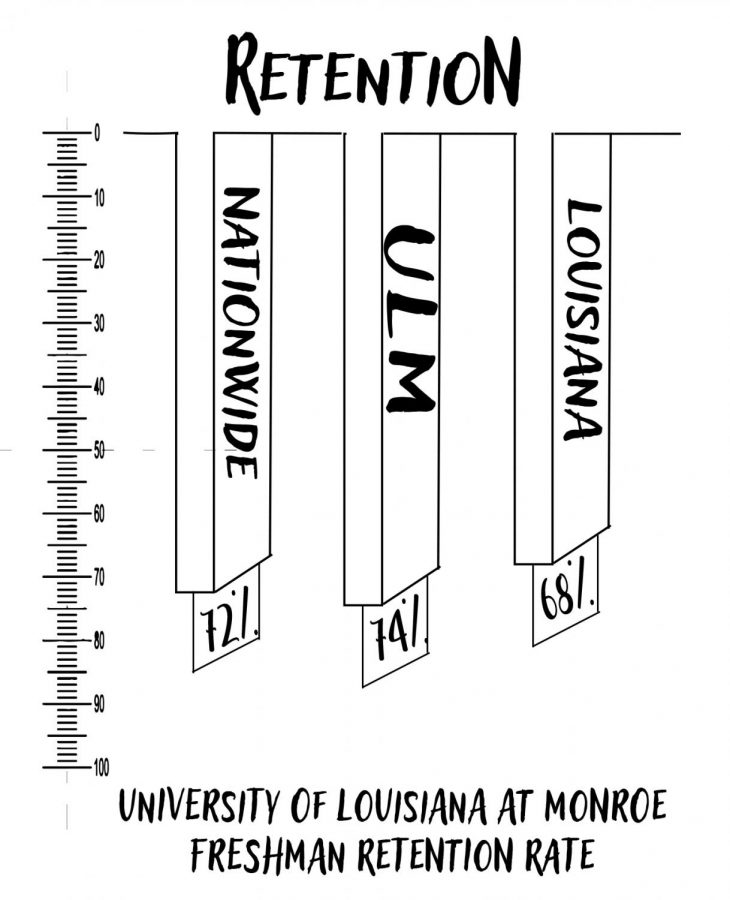Retention rate rising due to campus programs
Freshmen students worrying about their first year of college have a reason to calm down thanks to some recently released statistics about freshmen retention rates.
According to College Factual, ULM has a 74 percent freshman retention rate. A freshman retention rate is the percent of college freshmen who return to their sophomore year at the same institution. The nationwide average retention rate is 72 percent, while, Louisiana has an average of 68 percent.
Director of retention at ULM, Barbara Michaelides, said that there are various offices at work to keep the retention rate increasing on campus. One of the most well-known programs is university seminar, a class required of all freshmen their first semester.
“University seminar, which we’re over, is another retention program. Basically, that’s to help students make the switch from high school to college both socially and academically,” Michaelides said.
According to College Atlas, 56 percent of college students who started at a four-year college, drop out by year six in college. They also say that being unable to balance school, jobs and family is one of the top reasons for dropping out.
University seminar educates students on all of the available resources for them to be successful. The class instructor is also an advisor and monitors students’ progress.
The class also comes with a peer leader. This position is held by an older student who can be seen as an example to the younger ones. He or she are usually doing well academically and are heavily involved around campus outside of class.
Available for all students, but heavily suggested for freshmen, are programs like The Write Place, Language Lab and Mathematics Resource Center. They aid visitors in either writing, math or world languages classes.
One of the most used methods of teaching students outside of classes is in a setting where they interact with each other and as a result learn from one another. This is demonstrated best at the Language Lab. Director of the school of humanities Ruth Smith said students do better when inspired by other students who they see doing good.
“Students improve by the tutoring and by learning new approaches from other students. Seeing what other students can learn to do inspires them to try to do as well,” Smith said.
According to Michaelides, there is more to retention then maintaining good grades. Keeping students socially connected to campus is just as important as having them in class. A lot of those issues are combated through the office of Student Life and Leadership.
The Campus Activities Board and Student Government Association plan events every semester to keep students engaged and together outside of class.
“That’s one arm of retention designed to help a student feel connected to their institution,” Michaelides said.
Lastly, academic advisor and lab manager at the Student Success Center, Jana Carlson, said that the new Talon program on campus helps advisors and instructors reach out to struggling students.
The program isn’t even restricted to freshmen; upperclassmen can receive a Talon alert. All it takes for the Talon advisors to act is a professor mentioning a student struggling.
“We, as the mentors, reach out to those students a lot of times. Maybe it’s through email that we try to communicate with them, maybe we try to get them to come into the office and talk with us so we can make sure they understand what resources they have,” Carlson said.
Each year, the advisors in the Student Success Center strive to understand the new freshman class.
“We want to know the freshmen and what shapes them,” Michaelides said.





